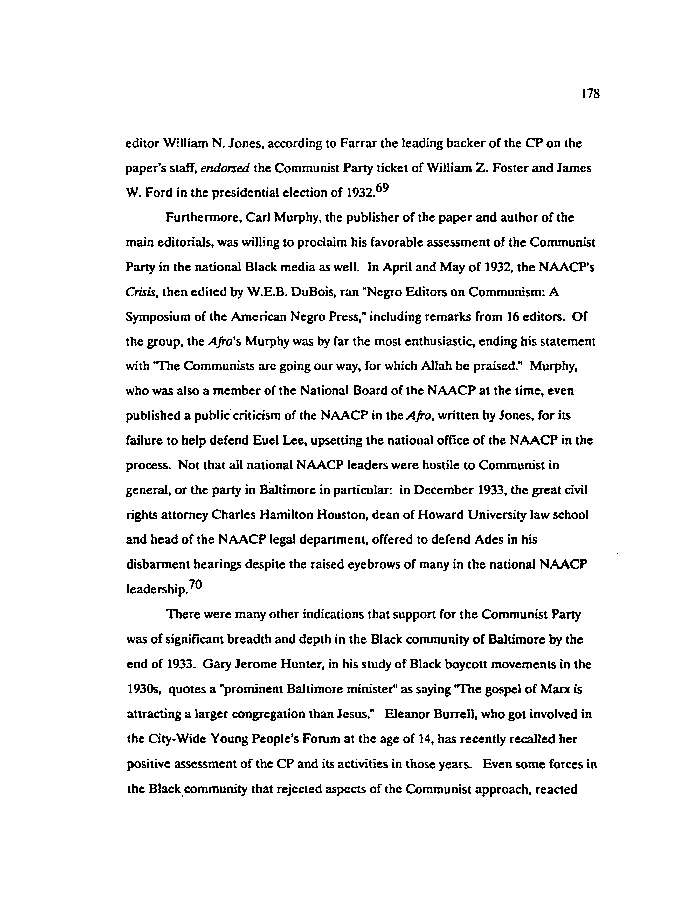|
178
editor William N. Jones, according to Farrar the leading backer of the CP on the
paper's staff, endorsed the Communist Party ticket of William Z. Foster and James
W. Ford in the presidential election of 1932.
Furthermore, Carl Murphy, the publisher of the paper and author of the
main editorials, was wilting to proclaim his favorable assessment of the Communist
Party in the national Black media as well. In April and May of 1932, the NAACP's
Crisis, then edited by W.E.B. DuBois, ran "Negro Editors on Communism: A
Symposium of the American Negro Press," including remarks from 16 editors. Of
the group, the Afro's Murphy was by far the most enthusiastic, ending his statement
with The Communists are going our way, for which Allah be praised." Murphy,
who was also a member of the National Board of the NAACP at the time, even
published a public criticism of the NAACP in the Afro, written by Jones, for its
failure to help defend Euel Lee, upsetting the national office of the NAACP in the
process. Not that all national NAACP leaders were hostile to Communist in
general, or the party in Baltimore in particular: in December 1933, the great civil
rights attorney Charles Hamilton Houston, dean of Howard University law school
and head of the NAACP legal department, offered to defend Ades in his
disbarment hearings despite the raised eyebrows of many in the national NAACP
leadership.
There were many other indications that support for the Communist Party
was of significant breadth and depth in the Black community of Baltimore by the
end of 1933. Gary Jerome Hunter, in his study of Black boycott movements in the
1930s, quotes a "prominent Baltimore minister" as saying The gospel of Marx is
attracting a larger congregation than Jesus." Eleanor Burrell, who got involved in
the City-Wide Young People's Forum at the age of 14, has recently recalled her
positive assessment of the CP and its activities in those years. Even some forces in
the Black community that rejected aspects of the Communist approach, reacted
|

